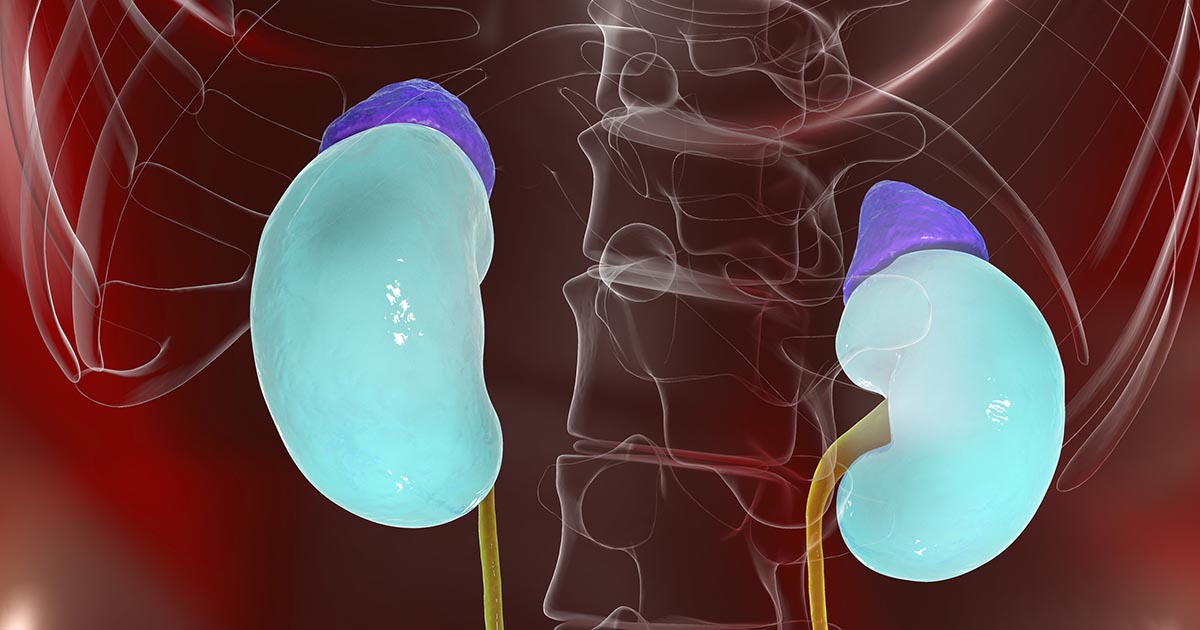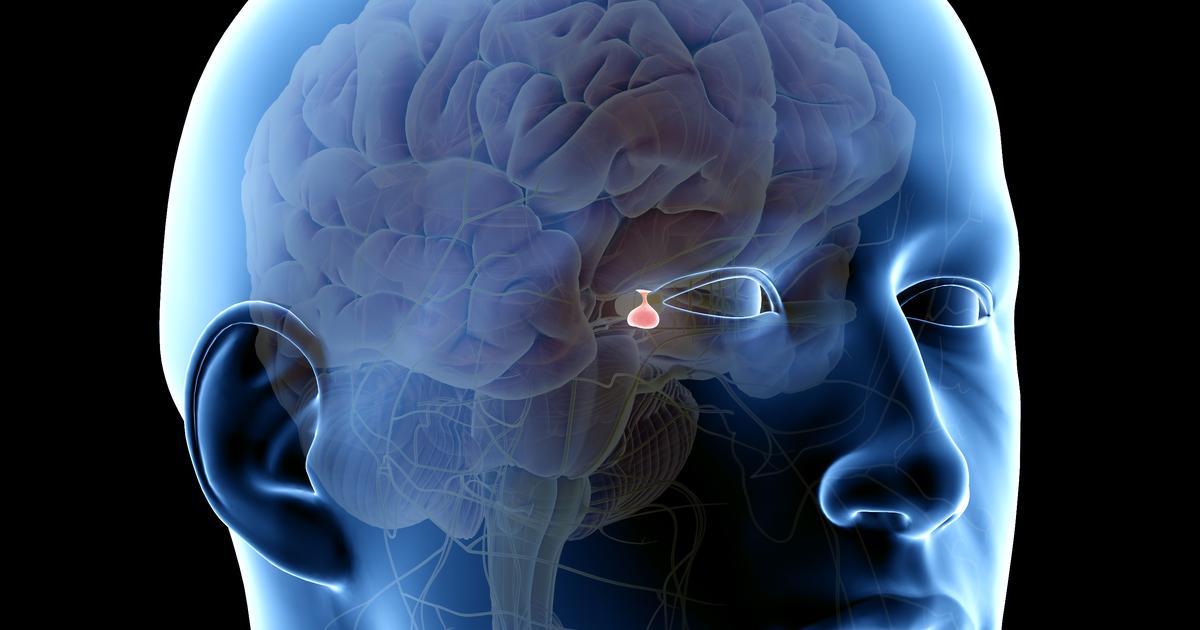Guide To Endocrine System Diseases
The endocrine system is the organ system in the body responsible for the production and secretion of hormones that initiate or stop numerous different body functions. The endocrine system determines the rate at which the body converts calories into energy, how the heart beats, the ability to reproduce, how the bones grow, and how the tissues grow. The main endocrine system organs are called glands, and each gland secretes different hormones into the bloodstream. These hormones make their way into the cells where they manage and coordinate numerous processes. The glands of the endocrine system include the hypothalamus, ovaries, adrenal glands, pancreas, parathyroid, pineal gland, pituitary gland, testes, thymus, and thyroid gland. These glands work seamlessly together to maintain the delicate balance of hormones in the body. Any problem that causes adverse changes to the structure or function of one of these glands is considered an endocrine system disease.
Get to know some major endocrine diseases now.
Diabetes

Diabetes mellitus is a disease where an individual's body has a problem with the way it utilizes and manages blood glucose. All the muscles and tissues in the body depend on glucose to produce usable cellular energy. Individuals who have type 1 diabetes are unable to produce their own insulin to manage their blood sugar due to non-functioning pancreatic beta cells. Type 2 diabetes patients are unable to use the insulin they do produce because their body does not respond to it appropriately to manage blood glucose. Individuals affected by gestational diabetes only have the disease while they are pregnant. Symptoms that occur in all forms of diabetes mellitus include frequent urination, increased thirst, unexplained weight loss, ketones in urine, fatigue, blurry vision, slow-healing sores, irritability, and frequent infections. Blood tests and a physical examination are used to diagnose diabetes. These blood tests include glycated hemoglobin test, random blood sugar test, fasting blood sugar test, and an oral glucose tolerance test. Medications, blood sugar monitoring, diet changes, and frequent exercise are all a part of effective diabetes treatment.
Read more about the different endocrine system diseases now.
Hyperthyroidism And Hypothyroidism

Hyperthyroidism and hypothyroidism are terms used to describe a problem with the thyroid gland, which is responsible for secreting hormones that control the activities of the heart, brain, muscles, and metabolism. Hyperthyroidism refers to a condition where the thyroid gland is producing too much thyroid hormone. Symptoms of hyperthyroidism include heat intolerance, sweating, forgetfulness, palpitations, fast heart rate, loose stool, weight loss, fatigue, racing thoughts, and problems focusing. Hypothyroidism is a condition where the thyroid gland is not producing enough thyroid hormone. Symptoms of hypothyroidism include fatigue, dry skin, constipation, muscle cramps, swelling at the front of the neck, decreased menstrual flow, weight gain, depression, dry hair, and brittle nails. Hypothyroidism is more common than hyperthyroidism, though both are more prevalent in women over sixty years old.
Continue reading to reveal the next endocrine system disease now.
Addison's Disease

Addison's disease is a rare disorder characterized by the lack of certain hormones in the body. In most Addison's disease patients, the adrenal glands produce deficient amounts of cortisol and aldosterone. Cortisol is a hormone that plays an important role in an individual's metabolism, immune system, and stress response. Aldosterone is a hormone-steroid that plays a critical role in multiple functions of the kidneys. Addison's disease occurs when an individual has sustained damage to their adrenal gland tissues. This damage could be the result of an autoimmune process or another mechanism. Symptoms that occur when the adrenal glands do not produce enough of these hormones include decreased appetite, low blood pressure, craving for salt, low blood sugar, abdominal pain, irritability, loss of body hair, depression, joint pain, low blood pressure, muscle pain, fatigue, weight loss, darkening of the skin, and sexual dysfunction. Addison's disease is diagnosed with the use of blood tests, ACTH stimulation test, CT scans, MRI scans, and insulin-induced hypoglycemia test.
Get more details on the different endocrine system diseases now.
Hashimoto's Thyroiditis

Hashimoto's thyroiditis is a disease where the thyroid gland becomes inflamed and underactive, resulting in hypothyroidism. Hashimoto's thyroiditis is a process that occurs when an individual's immune system mistakes the thyroid tissues in the body as a foreign invader and launches an attack on the gland. At first, the attack on the thyroid gland destroys a large amount of thyroid tissue and releases an excessive amount of thyroid hormone into the bloodstream. This release causes symptoms of hyperthyroidism that eventually lead to symptoms of hypothyroidism as the levels deplete, and the gland can no longer keep up with its production because it has become damaged. Symptoms of Hashimoto's thyroiditis include sensitivity to cold, puffy face, pale skin, dry skin, hair loss, weight gain, muscle aches, joint pain, muscle weakness, depression, memory lapses, sluggishness, constipation, brittle nails, enlarged tongue, and muscle stiffness. Hashimoto's disease is diagnosed with the use of blood tests that detect antibodies against the thyroid gland and levels of thyroid hormones in the body.
Discover additional endocrine system diseases now.
Cushing's Syndrome

Cushing's syndrome is a disorder where the body produces too much cortisol over an extended duration. Cortisol is a hormone that plays an important role in blood pressure maintenance, blood sugar regulation, the rate of energy metabolism, and the stress response. Cushing's syndrome is most commonly caused by the long-term use of high doses of a medication called glucocorticoids. Lupus, asthma, and rheumatoid arthritis are often treated with this type of medication. Individuals who have had an organ transplant of any kind may also use this medication to prevent the rejection of their donor organ. Certain types of tumors in an individual's body can cause them to produce an excessive amount of cortisol, such as pituitary tumors, ectopic ACTH-producing tumors, and adrenal tumors. Symptoms of Cushing's syndrome include weight gain, thin arms and legs, increased fat around neck base, easy bruising, purple stretch marks on the abdomen, weak muscles, a fatty hump between the shoulders, and a round face. A diagnosis of Cushing's syndrome is made with the use of the ACTH test, CRH stimulation test, HDDST, CT scans, petrosal sinus sampling, and MRI scans.
Uncover details on more endocrine system diseases now.
Graves' Disease

Graves' disease is an autoimmune condition that causes the thyroid gland to overproduce hormones. The condition is most common in women under forty years old. Patients with Graves' disease may experience symptoms such as anxiety, irritability, fatigue, heart palpitations, frequent bowel movements, and menstrual changes. The eyes may bulge, and the skin could become warm and moist. The thyroid gland will typically enlarge, and patients might become very sensitive to heat and start to sweat more. Areas of thickened, red skin could form on the shins or tops of the feet. To diagnose this condition, doctors perform blood tests, and an ultrasound of the thyroid gland is done to check for enlargement. A radioactive iodine uptake test could be recommended as well. Treatment options include anti-thyroid medications such as methimazole and propylthiouracil, and patients might also have radioactive iodine therapy.
Read more about the various endocrine system diseases out there now.
Acromegaly

Acromegaly results from the excessive production of growth hormone, which causes the bones and soft tissues to grow too much. Growth hormone is manufactured by the pituitary gland, and the most frequent cause of acromegaly is an adenoma (a benign tumor of the pituitary gland). This tumor is present in an estimated ninety-five percent of all acromegaly cases. The symptoms of acromegaly develop slowly over several months. Patients might notice their shoe or ring size gradually increases, and they could have excessive growth spurts, weight gain, and enlarged bones in the face, hands, and feet. Joints may become swollen and painful, and the toes and fingers could become splayed. Spaces might develop between the teeth, and the jaw or tongue could enlarge. Disrupted sleep, fatigue, headaches, muscle weakness, and heavy sweating have been reported. To diagnose acromegaly, physicians perform glucose tolerance tests, and they will also check the patient's levels of growth hormone and insulin-like growth factor 1. Ultrasounds might be recommended to check the size of internal organs, and patients may need x-rays and MRI scans to look for excessive bone growth. If a tumor is present on the pituitary gland, patients will have this removed in surgery, and this typically reduces growth hormone levels. Medications such as somatostatin analogs and growth hormone receptor antagonists could be beneficial, and some patients might need to have radiation treatments if a pituitary gland tumor cannot be completely removed during surgery.
Discover additional endocrine system diseases now.
Multiple Endocrine Neoplasia Type I

Multiple endocrine neoplasia type I, also known as Wermer's syndrome, is a rare inherited condition that affects an estimated one in every thirty thousand individuals. Patients with this condition have tumors in the duodenum and the endocrine glands. While the tumors are normally benign, they trigger the release of an excessive amount of hormones, which leads to illness. This condition is caused by genetic mutations, and symptoms may include bone pain, bone fractures, kidney stones, fatigue, and stomach ulcers. To diagnose multiple endocrine neoplasia type 1, doctors will perform a physical examination, blood tests, and imaging studies such as a CT or PET scan. There is no cure for multiple endocrine neoplasia type I at present, so treatment focuses on managing symptoms. If possible, surgery may be performed to remove tumors, and patients might have chemotherapy or radiation as well. Medications may be administered to control hormonal abnormalities.
Get more information on endocrine system diseases now.
Turner Syndrome

Turner syndrome is a genetic condition that occurs in girls, and it develops when one of the X chromosomes is partially or entirely absent. Patients with Turner syndrome may have heart and kidney abnormalities before birth, and these can be detected with a prenatal ultrasound. The ultrasound might also show abnormal fluid collection at the back of the neck. Other symptoms may become apparent at birth or during infancy. For example, patients could have a wide neck, swollen hands or feet, delayed growth, short fingers and toes, and low-set ears. In childhood and into adulthood, the patient might attain a height that is significantly less than other females in the family, and sexual development may begin late or stall during the teenage years. Turner syndrome patients often need fertility treatment to become pregnant. Turner syndrome may be diagnosed prenatally with amniocentesis or chorionic villus sampling. Treatment options include estrogen therapy and growth hormone therapy, and patients will need regular checkups throughout their lives.
Learn more about the different endocrine system diseases now.
Prolactinoma

A prolactinoma is a type of benign pituitary gland tumor, and it causes the gland to produce too much of a hormone called prolactin. The overproduction of this hormone reduces estrogen in women and testosterone in men. Although patients with this condition might be asymptomatic, prolactinomas can trigger a range of symptoms if they grow large enough to press on surrounding tissues or if they cause excessive prolactin in the blood. Females may have irregular or absent menstrual periods, and a milky discharge from the breasts might occur in women who are not currently pregnant or breastfeeding. Prolactinomas might cause vaginal dryness that could make sex painful, and women could also notice excessive hair growth on the face and body. In males, prolactinomas might cause enlarged breasts, decreased facial and body hair, and erectile dysfunction. Male and female patients could notice headaches and visual disturbances, and low bone density and infertility might occur. To diagnose a prolactinoma, doctors perform blood tests to check prolactin levels, and MRI scans of the brain are done to detect potential tumors on the pituitary gland. Long-term treatment with dopamine agonists is recommended to decrease the production of prolactin and reduce tumor size. Patients may need to have transcranial or transsphenoidal surgery to remove the tumor.
